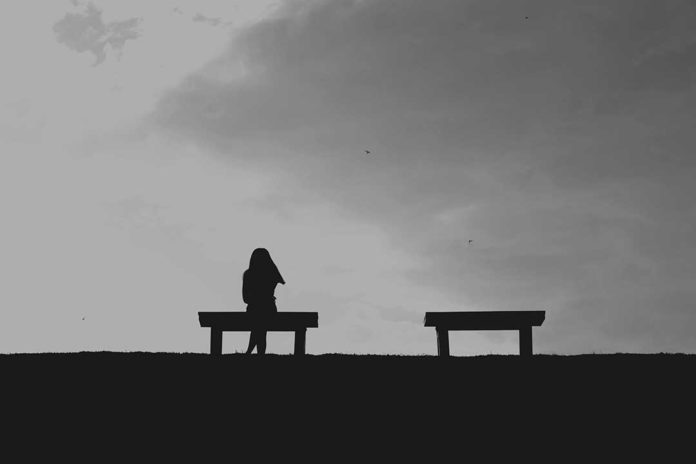Loneliness is a common human emotion, and when fleeting, it is possible that an individual may not be gravely impacted. However, persistent and pervasive sentiments of isolation can be harmful to our health.
In the last 50 years, rates of loneliness have doubled in the United States. Even in recent years, public health officials have warned about a rising epidemic of loneliness, with rates of loneliness reportedly doubling over the past 50 years.
In a new study, scientists at the University of California San Diego School of Medicine put a specific, concerning, and surprising face to the issue. Scientists found that moderate to severe loneliness persisted across the adult lifespan but was particularly acute during three age periods: late 20s, mid-50s, and late-80s.
Almost 340 community-dwelling adults were involved in the study. Three-fourths of study participants reported moderate to high levels of loneliness, using a well-established assessment scale. The figure represents a substantial increase from previously reported prevalence estimates in the U.S. general population, which have ranged from 17 to 57 percent.
Dilip Jeste, MD, Distinguished Professor of Psychiatry and Neurosciences, said, “This is noteworthy because the participants in this study were not considered to be at high risk for moderate to severe loneliness. They didn’t have major physical disorders. Nor did they suffer from significant mental illnesses such as depression or schizophrenia, in which you might expect loneliness to be problematic.”
“Though there were clear demographic limitations to the group, these participants were, generally speaking, regular people.”
The researchers assessed participants using multiple measures, including the well-established, 20-point UCLA Loneliness Scale, Version 3; a four-item, self-reported measure of social isolation developed by the U.S. Department of Health and Human Services; and the San Diego Wisdom Scale, created by Jeste and colleagues to assess an individual’s level of wisdom, based on the conceptualization of wisdom as a trait with a neurobiological as well as psychosocial basis, and thus modifiable.
Barring proof of mild loneliness, which Jeste said is normal and expected to infrequently show up for the duration of adult life, the analysts found that loneliness severity and age “had a complex relationship,” topping at explicit periods in both men and women. There were no gender contrasts in loneliness prevalence, seriousness, or age relationships.
First author Ellen Lee, MD, a research fellow in geriatric mental health in the UC San Diego School of Medicine Department of Psychiatry, characterized the study’s findings as both bad news and good news.
She said, “On the negative side, moderate to severe loneliness appears to be highly prevalent throughout adult life. And loneliness seems to be associated with everything bad. It’s linked to poor mental health, substance abuse, cognitive impairment, and worse physical health, including malnutrition, hypertension and disrupted sleep.”
On the other side, scientists found a strong inverse association between wisdom and loneliness. People who were deemed wiser were less lonely. That may be due to the fact that behaviors that define wisdom, such as empathy, compassion, emotional regulation, and self-reflection, effectively counter or prevent serious loneliness.
Jeste said, “Clearly, more research needs to be done. These are the early days for the emerging sciences of wisdom and loneliness. This study is the first known to assess loneliness using multiple measures with a well-characterized sample and broad age range and which examined both negative and positive psychological traits and states.”
“There are more gaps in knowledge than there are answers at the moment. But these findings suggest we need to think about loneliness differently. It’s not about social isolation. A person can be alone and not feel lonely, while a person can be in a crowd and feel alone. We need to find solutions and interventions that help connect people and help them to become wiser. A wiser society would be a happier, more connected, and less lonely society.”
The study is published in the December 18 online issue of International Psychogeriatrics.
